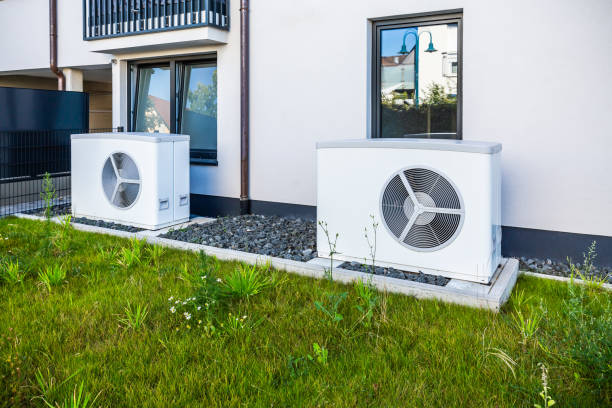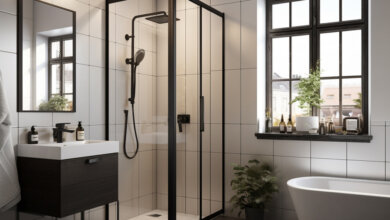Find a best Air Source Heat Pump Maintenance, Servicing, and Repairs

Understanding Air Source Heat Pumps
What is an Air Source Heat Pump?
An air source heat pump (ASHP) is a smart and eco-friendly heating and cooling system that extracts heat from the outside air and transfers it inside your home to keep you warm during chilly months. In warmer seasons, it can reverse the process, acting as an air conditioner. Essentially, it’s a versatile device that taps into the air around you to regulate indoor temperatures efficiently.
How Does It Work?
Imagine a refrigerator but in reverse — that’s basically how an air source heat pump maintenance operates. It uses refrigerant fluid, compressors, and fans to pull heat from the outside air, even when it’s cold, and then pumps that warmth inside. The process involves cycles of evaporation and condensation to move heat energy, making it highly energy-efficient compared to traditional heating systems.
Benefits of Using Air Source Heat Pumps
-
Energy Efficiency: ASHPs use less electricity than conventional heating, reducing energy bills.
-
Environmentally Friendly: They emit fewer carbon emissions, supporting a greener planet.
-
Dual Functionality: Heat your home in winter and cool it in summer.
-
Low Maintenance: With proper care, these units are reliable and long-lasting.
Why Maintenance is Crucial for Air Source Heat Pumps
Improving Efficiency and Performance
Just like your car needs regular oil changes, your heat pump requires maintenance to run smoothly. Dust, debris, or worn parts can slow it down, causing it to work harder and consume more energy.
Extending the Lifespan of Your Heat Pump
Routine upkeep helps prevent small issues from escalating into costly repairs or full breakdowns, extending your unit’s life by several years.
Avoiding Costly Repairs
Ignoring maintenance often leads to bigger problems that can be expensive to fix. Investing a little time and money now can save you a fortune later.
Routine Maintenance Tips for Air Source Heat Pumps
Cleaning the Outdoor Unit
The outdoor unit is exposed to weather, leaves, and dirt. Clean it regularly by removing leaves, branches, and any debris around the unit to ensure proper airflow.
Checking and Replacing Filters
Filters trap dust and allergens, but when clogged, they restrict airflow. Check them monthly and replace or clean as needed to maintain air quality and system efficiency.
Inspecting Fan and Coils
Make sure the fan blades are clean and spin freely. Dirty coils reduce heat transfer efficiency, so gently clean them at least once a year.
Monitoring Refrigerant Levels
Low refrigerant can make your heat pump struggle to heat or cool properly. If you notice poor performance, have a technician check refrigerant levels.
Clearing Debris and Ice
In cold weather, ice can build up on the outdoor unit, blocking airflow. Remove ice carefully and ensure the defrost cycle is functioning.
Professional Servicing for Air Source Heat Pumps
What to Expect During a Service Visit
A professional technician will perform a thorough inspection, clean vital parts, check electrical connections, test refrigerant pressure, and ensure the system operates safely and efficiently.
How Often Should You Service Your Heat Pump?
Annual servicing is recommended to keep your heat pump in top condition, ideally before the heating season starts.
Choosing a Qualified Technician
Look for certified and experienced HVAC professionals who specialize in heat pumps to ensure quality service and avoid costly mistakes.
Common Issues with Air Source Heat Pumps
Low Heating Output
This might be due to dirty filters, low refrigerant, or a malfunctioning thermostat.
Strange Noises from the Unit
Grinding, rattling, or squealing sounds often indicate worn fan bearings or loose components.
Frozen Outdoor Unit
Ice buildup can be caused by low refrigerant, poor airflow, or faulty defrost controls.
Faulty Thermostat or Controls
If your heat pump isn’t responding properly, the thermostat or wiring might be at fault.
Heat Pump Repairs – When to Call the Experts
Signs You Need Repairs
-
Sudden drop in heating/cooling efficiency
-
Unusual noises or smells
-
Frequent cycling on and off
-
Visible damage or leaks
Typical Repair Procedures
Repairs may involve replacing compressors, fixing leaks, electrical rewiring, or component replacements.
Cost of Repairs vs Replacement
Sometimes heat pump repairs can be costly, so evaluate if investing in a new, more efficient heat pump might be more economical in the long run.
DIY vs Professional Repairs – What You Should Know
Simple Fixes You Can Try
Cleaning filters, clearing debris, or resetting the thermostat are safe to try on your own.
Risks of DIY Repairs
Working with refrigerants or electrical components without training can be dangerous and may void warranties.
When to Always Call a Pro
If you suspect refrigerant leaks, electrical faults, or major mechanical issues, contact a professional immediately.
Tips for Maximizing Your Heat Pump’s Lifespan
Regular Maintenance Schedule
Stick to routine cleaning and annual professional servicing.
Proper Usage and Settings
Use energy-saving modes and avoid setting temperatures too high or low.
Seasonal Preparation
Prepare your unit for winter and summer by checking all parts before peak usage.
Environmental Impact and Energy Savings
How Maintenance Helps Lower Your Carbon Footprint
An efficient heat pump consumes less electricity, reducing greenhouse gas emissions linked to power generation.
Energy Efficiency Tips
Seal your home properly, insulate walls, and maintain your heat pump to optimize energy savings.
Conclusion
Maintaining, servicing, and repairing your air source heat pump is not just about keeping warm or cool; it’s about protecting your investment, saving money, and reducing your environmental impact. By following simple routine maintenance, scheduling professional servicing, and addressing repairs promptly, you ensure your heat pump runs efficiently for years to come. Don’t wait for problems to surface—be proactive and keep your system in prime condition!
Frequently Asked Questions (FAQs)
Q1: How often should I clean my air source heat pump filters?
A1: Ideally, check and clean filters every 1-3 months depending on usage and environment.
Q2: Can I perform heat pump servicing myself?
A2: Basic cleaning is okay, but annual servicing and repairs should be done by qualified technicians.
Q3: What causes ice buildup on the outdoor unit?
A3: It’s usually due to low refrigerant, poor airflow, or malfunctioning defrost controls.
Q4: How long does an air source heat pump typically last?
A4: With proper care, they can last between 15 to 20 years.
Q5: Is it worth repairing an old heat pump?
A5: If repair costs approach 50% or more of a new unit’s price, replacement might be more cost-effective.




